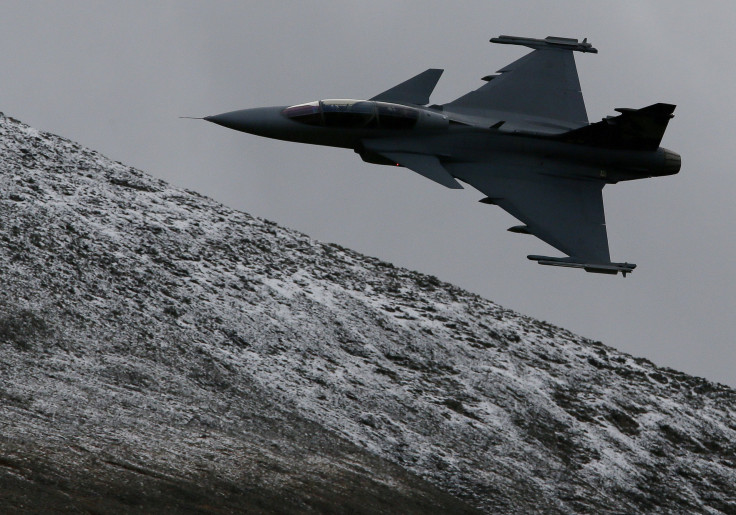Brazilians Aren't Happy About $4.5 Billion Purchase Of Saab Gripen Fighter Jets

When everybody thought it was not going to happen anymore, Brazil's President Dilma Rousseff announced in a surprise twist that the government was finally making a decision on a new fleet of fighter jets for the Brazilian Air Force -- a discussion Brazilians have seen go on for over 10 years. And the winner surprised everyone: After ditching the French Rafale due to cost, and the F-18 Super Hornet from Boeing (NYSE:BA) for political reasons, Brazil has opted for 36 Gripen fighter jets, made by Sweden's Saab (STO:SAAB-B).
Defense Minister Celso Amorim explained the reasons for the choice during a press conference on Wednesday: "The choice took into account performance, technology transfer and cost, not only for acquisition but also for maintenance. The decision was based on the best balance of those factors." And while Dassault Aviation SA (EPA:AM), the maker of the Rafale, mourns its losses and Brazilian senators get over the shock, Brazilians took to social media to make their feelings heard.
The mood is not positive.
Aside from relief for the end of the decade-long debacle ("The novella is over!" wrote Ramon Matheus), many observers of the contest, known as FX-2, were not pleased with the decision to go with the Swedes, who had long been seen as the underdog. Unlike the other two competitors, the Gripen was not tested in actual combat and is much smaller. (But also has a much smaller acquisition and operating cost.)
"It does not make any sense (technically speaking) for Brazil to pick Gripen as the jet for FX," twitted Anderson Fraga. Matheus followed up by tweeting, "Had it been me I would have chosen the Russian [meaning the Sukhoi 35, which was once considered] or the French."
Yuri Welter was more assertive: "About that Saab Gripen that Brazil just bought: a screw up." Roberto Amorim (no relation to the minister) contributed snidely: "So Brazil finally decided which fighter jets to buy for the FX-2, and it chose the Gripen? At last a good decision that makes sense!"
But the real backlash came from those who were opposed to whatever purchase, from the beginning. Brazil has had an eventful year, with 2013 seeing turmoil on a scale never before seen in the country. An announcement in June of an increase in the price of public transportation led to nationwide protests, which later escalated to the first general strike in two decades. Brazilians demanded better welfare, more government spending on education and health care, and less money on vanity projects like the 2014 World Cup or the Rio de Janeiro Olympics in 2016.
When Dassault was kicked out of the race earlier this week, some speculated that Rousseff might delay the purchase until at least 2015 and focus on the social spending and reform her country was demanding. But as the news broke on Wednesday that the government would spend $4.5 billion on the Gripen deal, those concerns came back on Twitter.
"Brazil is going to spend $4.5 billion on 36 fighter jets. Well done, Dilma! Because we don't need schools or hospitals," wrote Lourenço Fabrino. Marcos Melo agreed: "Mrs. Dilma, Mrs. Dilma, what about schools, hospitals and daycare centers? We do not need planes."
© Copyright IBTimes 2024. All rights reserved.





















